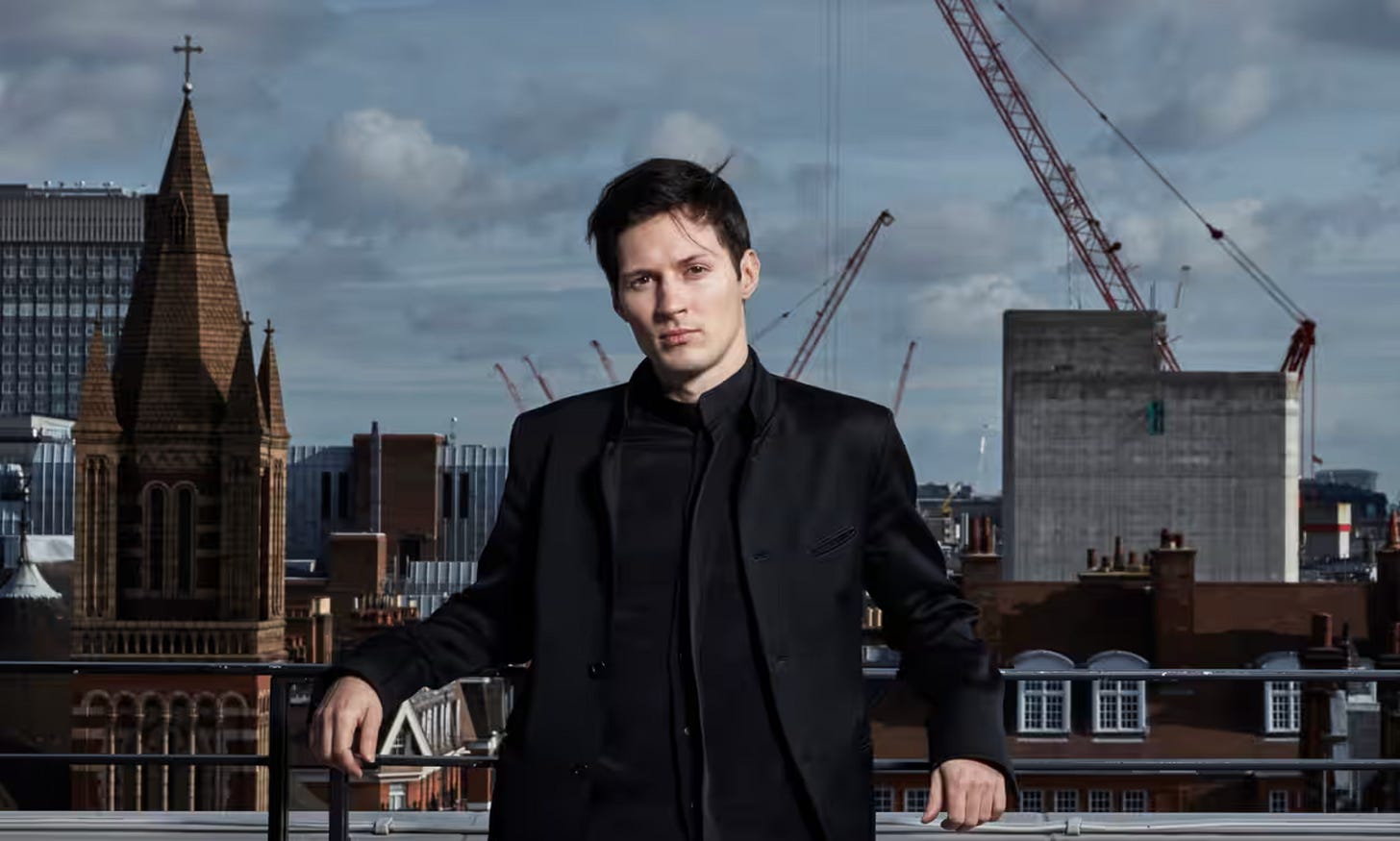The world is getting more dangerous?
Free speech crackdown. YC invests in missiles. Another humanoid robot?

Pavel Durov, founder of messaging app Telegram, was arrested in France and charged with "operating a platform which is being used for child sexual abuse material and by organised crime gangs, for drug trafficking and fraud". Pavel, pictured above doing his best supervillain impression, has taken a hands-off approach to moderation on Telegram, refusing to join child protection schemes for example. His arrest caused outrage amongst free speech activists and right wing pundits, with Elon Musk tweeting "POV: It’s 2030 in Europe and you’re being executed for liking a meme". Paul Graham hinted it would harm France's chances to become "a major startup hub.”
Initially, I had the same reaction.
But it is extremely easy to find all sorts of illegal activities on Telegram, with some describing it as the "new dark web". Telegram is not just a 1:1 communication platform, but blurs the line between a messaging app and social media platform. So it’s not that clear that it should just be an “absolute free speech” zone. Nobody wants the proliferation of sexual abuse material and drug trafficking - so there has to be a balance. For now, Pavel has been released from jail on a €5 million bail, and must remain in France until his trial.

Y Combinator ventured into the weapons sector for the first time, investing in low cost missile maker Ares Industries. YC partner Jared Friedman defended the move, citing possible war in China as a motivating factor, and that "The ability to produce enough missiles to be competitive is the best way to deter a war." Which sounds a bit of a weak justification to me.
The positive case for Ares is that democracies are worth defending, and so YC is right to invest in the next generation of defence manufacturers. The cynical view is that YC is just getting in on the new gold rush in defence, as military spending surges - $2.4 trillion was spent worldwide in '23 - in response to conflicts in Gaza and Ukraine. It's an unfortunate truth that conflict often spurs innovation, as WW2 helped the development of technologies from radar to the jet engine. Shyam Sankar, CTO of Palantir, is also helping new defence tech startups get off the ground with a new internal program called First Breakfast. With more conflict around the world, this is one investment sector that is continuing to boom (pun very much intended).

Humanoid robots are also continuing to generate a lot of noise, as better mechanics and with rapid changes in AI capabilities combine to accelerate their capabilities. The latest entrant is called NEO, and it wears sweats and gives hugs and looks like a reanimated store mannequin. The blank featureless "face" in particular I find unnerving.
The company wants to deliver 100,000 of these robots around the world by 2027. So not in a decade, but just in a couple of years. Now whether they can actually meet their ambitious target is another question. As Tesla found out with the Model 3, manufacturing complex machines at scale is really hard. The potential of humanoid robots is huge - from domestic chores such as doing your laundry, to industrial uses such as carrying out quality checks on car doors, headlights and seat belts. Pretty much the idea is they can do anything humans can do.
1X joins a bunch of companies competing in this space. The best ones so far I recon are the Tesla Optimus 2 and the Figure.



